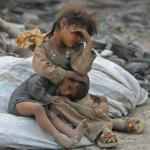95.1 percent of the Turkish people are plunged in debt. This is the startling result of a research carried out by the Research and Development Centre (Ar-Ge) of the Public Workers Unions Confederation of Turkey (Kamu-Sen). AR-GE carried out an investigation into the debt situation of the Turkish people. 1724 participants in 81 provinces filled in the nation-wide survey and answered questions regarding their debt situation and, in case they have a regular loan, the amount of the debit. The participants were free to define whether it was an individual or a family debt.
With 24.9 percent, just under a quarter of all people in debt are encumbered by loans between TL 20,000 and 50,000 (€ 10,000/25,000). For 19.1 percent of all respondents, the debt exceeds TL 50,000.
Ar-Ge expert Ercan Han coordinated the research on behalf of Kamu-Sen. He indicated that the findings correspond to the figures compiled by the Turkish Statistical Institute (TÜİK). "The TÜİK Survey on Income and Living Conditions did not receive sufficient attention and went unnoticed. It actually revealed important data", Han said.
TÜİK released their report on "Income and Living Conditions in 2009" in February 2011. Here are some of its key facts about the Turkish population:
* 29.3 percent have great difficulty in paying back their debts.
* 62.5 percent are not able to spend money on anything else but their mandatory expenses.
* 87.4 percent cannot go on holiday.
* 82.1 percent are not able to replace broken furniture.
* 42.2 percent live in homes with leaking roofs, damp walls and rotten windows.
* 42.9 percent have not heating.
"We are close to a social explosion", İsmail Koncuk, President of Kamu-Sen, assessed the findings. "The average employment rate in OECD countries ranges at 66 percent whereas Turkey is on the lowest level with 48 percent. Thus, only 48 out of 100 people in Turkey are working or looking for a job while the remaining 52 percent are mere consumers".
Koncuk continued, "Regardless of the expense, the citizens are being directed towards spending, i.e. consuming. Despite economic growth the country lacks a structure that creates employment. This is the dilemma of the economy of our country. The mandatory consumption expenditure is raised above the inflation level but the increase of salaries remains below the inflation. This is the reason for the narrow and fixed-income section to become plunged in debt". (HK/EÖ)









